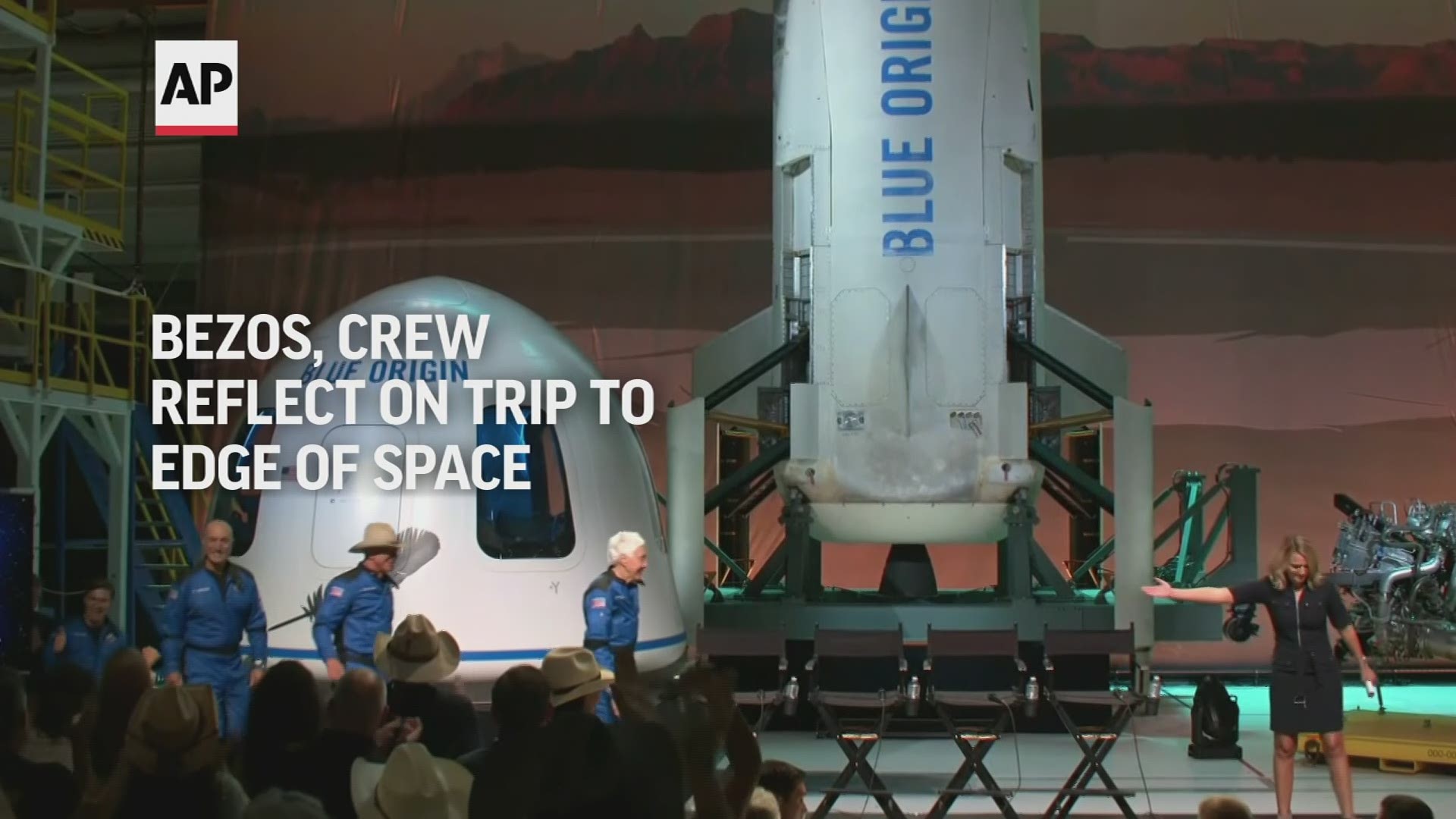TEXAS, USA — Blue Origin founder Jeff Bezos is hoping a letter penned to NASA Administrator Bill Nelson and a $2 billion discount will get the space agency to reconsider its single lunar lander development selection.
The private space company was among three finalists selected to design and develop a human landing system (HLS) for NASA's Artemis program but was passed up when SpaceX won the $2.89 billion contract.
At the time, the decision to push forward with one company instead of breeding competition was questioned. It also led Blue Origin and Dynetics to both file bids with the U.S. Government Accountability Office.
NASA pointed the finger at budget constraints and overall strategy before adding it would start to have industry discussions about further developing competition on a future services contract.
But it appears Blue Origin is trying a new angle with the United State's top space agency.
"Without competition, a short time into the contract, NASA will find itself with limited options as it attempts to negotiate missed deadlines, design changes, and cost overruns. Without competition, NASA’s short-term and long-term lunar ambitions will be delayed, will ultimately cost more, and won’t serve the national interest," Bezos wrote.
The billionaire goes on to describe NASA's decision, before Nelson was confirmed, as last-minute and a mistake that is "not too late to remedy." According to Bezos, the decision also broke the space agency's mold of creating meaningful competition and instead offered a head start to SpaceX.
In an effort to reach his desired outcome, Bezos, on behalf of the National Team, offered the following to NASA:
- Waiving all payments in the current and next two government fiscal years up to $2 billion.
- Blue Origin will contribute to the development and launch of a path-finder mission to low-Earth orbit at its own cost.
- The company will accept a "firm, fixed-priced contract for its work and cover any development cost overruns while shielding NASA from partner cost escalation concerns.
The company adds that its HLS contract is still open and able to be amended.
"I believe this mission is important. I am honored to offer these contributions and am grateful to be in a financial position to be able to do so. NASA veered from its original dual-source acquisition strategy due to perceived near-term budgetary issues, and this offer removes that obstacle," Bezos wrote.
Only time will tell if NASA will award Blue Origin a second HLS contract but Nelson, in the past, has noted his desire for contests. During his April Senate confirmation hearing, NASA's now 14th administrator was asked about his commitment to competition on the lunar lander project.
“Competition is always good," he said at the time.
The contract Blue Origin is vying for would allow the company to build the spacecraft that will carry astronauts to the lunar surface for the first time in about 50 years when astronaut Harrison Schmitt became the last U.S. man to step foot on the Moon in 1972.
The Artemis program is inspired by NASA's Apollo program and how it proved it was possible to land humans on the Moon and return them to Earth safely. In Greek mythology, Artemis is the twin sister of Apollo.
“NASA’s Apollo program proved it is possible to land humans on the Moon and return them safely to Earth. But when NASA returns to the Moon with the Artemis program it will go in a way that reflects the world today," Associate Administrator of Human Exploration and Operations Mission Directorate at NASA Kathy Lueders said.
According to NASA, the human landing system will allow for the exploration of new technology that could help them land on Mars and other planets in the future.
Blue Origin's initial proposal included a three-stage lander that would be launched on its own New Glenn Rocket System and ULA Vulcan launch system.
According to the company, its design was sustainable and built for repeat lunar missions that put astronaut safety at the forefront.
"Unlike Apollo, our approach is designed to be sustainable and to grow into permanent, affordable lunar operations," Bezos said. "Our lander uses liquid hydrogen for fuel. Not only is hydrogen the highest-performing rocket fuel, but it can also be mined on the Moon. That feature will prove essential for sustained future operations on the Moon and beyond."
The U.S. Government Accountability Office has until Aug. 4 to make a decision on the companies bids.
You can read Bezos' full letter here.
- 'It’s been an honor': Chief Brian Dugan announces his retirement from Tampa Police Department
- Carlie Brucia's killer, Joseph Smith, dies in prison
- Deputies: Shooter, 1 other injured in Spring Hill shooting
- Gov. DeSantis, DEO sued over Florida's early end to additional federal unemployment benefits
- Red tide at the beach: See the latest conditions
- A Frank Conversation: New podcast explores race, religion, politics and more
►Breaking news and weather alerts: Get the free 10 Tampa Bay app
►Stay In the Know! Sign up now for the Brightside Blend Newsletter

